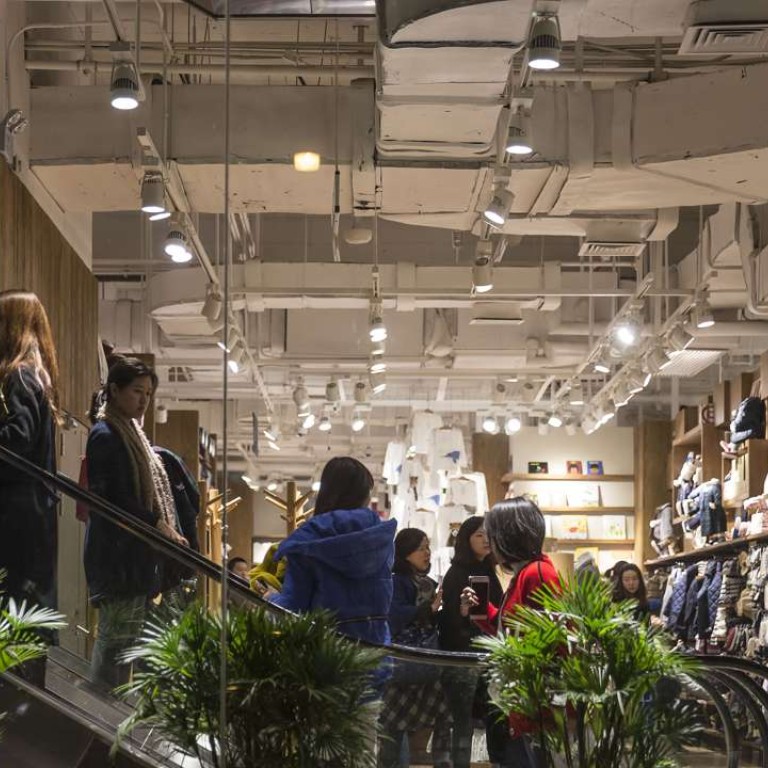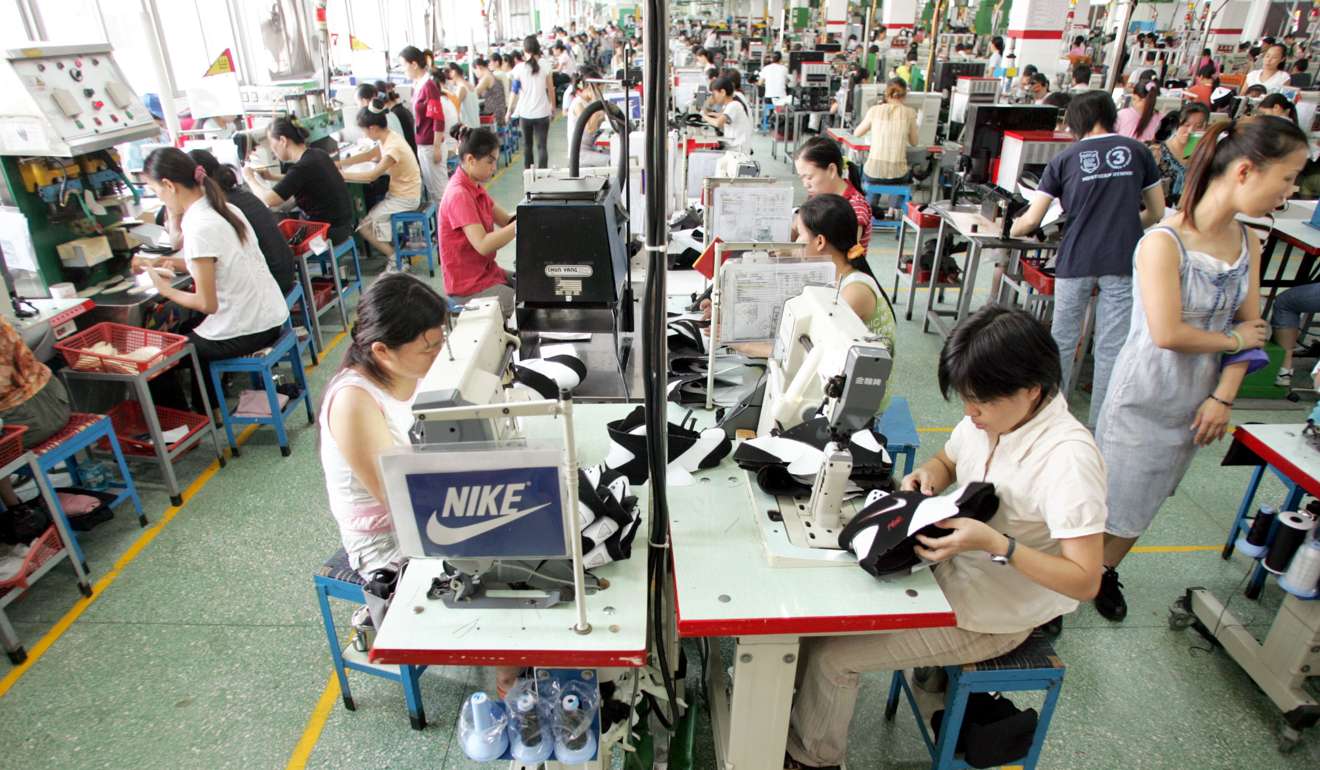
China’s consumer rights show names and shames US brand Nike, Japan’s Muji
Nike admits only to a ‘mistake’, while Muji says CCTV annual show is ‘misleading’
At an annual event to name and shame dishonest businesses, Chinese state media took on two global consumer brands: accusing US sports apparel maker Nike of misleading advertising and Japanese retail brand Muji of mislabelling food products.
In response, Nike admitted a mistake in a product description but said it was not false advertising. Muji said it was the CCTV report that was misleading, as the address shown in Japanese on its labels was that of its parent company, not of the place of origin of the products.
Every year, state-run CCTV programmes an evening show on World Consumer Rights Days (March 15), in which it takes aim at shoddy business practices, from unsafe food to poor-quality products and services sold in China.
In the past, it has targeted major brands including the US fast food giant McDonald’s and French supermarket chain Carrefour. Many Chinese consumers use the show to update their shopping blacklists.
In a six-minute segment, Nike was criticised for misleading information on limited sales of one model of basketball shoes, a remake of the pair retired NBA star Kobe Bryant wore during his final game at the 2008 Beijing Olympic Games. Nike promoted the shoes as having air cushions in the heel, but Chinese who bought the shoes for 1,499 yuan a pair found that wasn’t true, the report said.

Nike China admitted a mistake in its description and deleted it from its website, and offered customers full refunds, the report said, but a Nike representative on the show said it was not false advertising.
It was not the first time Nike has been involved in an “air cushion scandal” in China. In 2012, the Beijing administration for industry and commerce fined the sportswear brand 4.87 million yuan for selling Hyperdunk 2011’, a basketball shoe that contained a single air cushion as opposed to the double cushion promoted in its advertising materials.
In addition, a Muji store in China was said to be selling food and beverages labelled as being from areas affected by radiation from Fukushima after the nuclear accident there in 2011. The Chinese labels simply said the products came from Japan, but the Japanese labels showed the products’ origin as Tokyo, one of 10 prefectures in Japan from which the Chinese government has banned food imports since the crisis.
Watch: Nike called out for false marketing on China TV
According to the report, about 13,000 online retailers in China have sold food that originally came from the banned areas and had misleading labels on their packaging. Those Japanese products were shipped to tax-free ports in China and then sold to online retailers, the report said.
On Thursday, Foreign Ministry spokeswoman Hua Chunying said the Japanese government had not been transparent about its policies in the aftermath of the 2011 nuclear crisis, and she urged Tokyo to refrain from actions that would be detrimental to public health in other countries.
Muji published a statement on Thursday, saying the CCTV report was “misleading”.
The company said the address shown on the Japanese labels is that of Muji’s parent firm in Japan, not where the food was produced.
The two products – a tea and a cake product – were made in Fukui and Osaka prefectures, the company said. These two regions are not on the blacklist of places banned from exporting food products to China after the nuclear accident.
Muji said every batch of its food products sold in China was legal. It had provided their licenses of appellation of origin to the Shanghai Entry-Exit Inspection and Quarantine Bureau and obtained the approval documentation.
In a response that CCTV recorded on a hidden camera, one Chinese retailer shrugged off the concerns, saying, “News is news. Business is business.”
Additional reporting by Alice Yan

